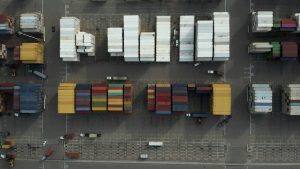The United States and Brazil have a significant trade relationship, particularly in the automotive sector. However, exporting to Brazil poses unique challenges, especially when it comes to collecting payments. Understanding the intricacies of legal frameworks, assessing credit risks, navigating collection difficulties, and adapting to economic fluctuations are critical for effective payment collection. This article delves into these challenges and offers insights into implementing strategies that can help U.S. exporters to the Brazilian automotive industry secure their receivables.
Key Takeaways
- Navigating the USA-Brazil trade legalities and compliance standards is crucial for resolving payment disputes and safeguarding transactions.
- Conducting thorough due diligence and credit risk assessments on Brazilian automotive buyers can mitigate non-payment risks.
- Understanding cultural nuances, communication barriers, and local legal systems is essential for effective debt recovery in Brazil.
- Exporters must stay vigilant to Brazil’s economic conditions and currency volatility to adapt their payment collection strategies accordingly.
- Choosing the right collection strategy, including preventive measures and leveraging technology, can enhance the efficiency of debt recovery.
Understanding the Legal Framework for USA-Brazil Trade
International Trade Agreements and Regulations
The legal framework for USA-Brazil trade is a complex tapestry of international agreements and regulations. Navigating this landscape is crucial for ensuring compliance and securing payments for exports. Key agreements include the World Trade Organization (WTO) guidelines, which set the global rules of trade between nations. The United States-Mexico-Canada Agreement (USMCA) also plays a role, although its specifics are more regional. For certain products, the Generalized System of Preferences (GSP) offers benefits that exporters should leverage.
Jurisdictional challenges often arise, necessitating clear contracts and proactive risk mitigation strategies. It’s essential to understand the nuances of these agreements to avoid legal pitfalls and streamline the payment collection process.
Proactive contract management and risk assessment are the bedrocks of successful export transactions.
The Brazilian Automotive Industry’s Compliance Standards
The Brazilian automotive industry operates under stringent compliance standards, which can impact the ease of collecting payments for USA exports. Understanding these standards is essential for exporters to navigate the complexities of international trade with Brazil.
- Brazilian regulations mandate specific quality and safety standards for automotive parts and vehicles.
- Environmental regulations also play a significant role, with strict emission and recycling requirements.
- Compliance with these standards is not only a legal obligation but also influences the reputation and market access of exporters.
Exporters must ensure their products meet these standards to avoid payment delays or legal complications.
Failure to comply can lead to payment withholdings, legal disputes, and potential loss of business. It is crucial for exporters to stay informed and adapt to any changes in Brazilian compliance regulations to maintain a smooth payment collection process.
Legal Recourse for Payment Disputes in Export Transactions
When export transactions go awry, U.S. companies face the daunting task of navigating foreign legal systems. Legal action is a critical recourse for unresolved payment disputes. The process typically unfolds in phases, each with its own set of decisions and potential costs.
- Phase One involves initial contact attempts, including letters, calls, and skip-tracing to locate debtor assets.
- In Phase Two, if direct collection efforts fail, the case is escalated to affiliated attorneys within the debtor’s jurisdiction.
- Phase Three presents a decision point: to litigate or not. Litigation requires upfront costs, but if the case is strong, it can lead to recovery of the full amount owed, including legal fees.
The choice to pursue legal action hinges on a careful cost-benefit analysis and the likelihood of successful debt recovery.
Understanding the fee structure is essential. Collection rates vary based on the age and size of the claim, and whether an attorney is involved. Here’s a snapshot of potential fees:
| Claims Submitted | Accounts < 1 Year | Accounts > 1 Year | Accounts < $1000 | Attorney Involved |
|---|---|---|---|---|
| 1-9 | 30% | 40% | 50% | 50% |
| 10+ | 27% | 35% | 40% | 50% |
These rates underscore the importance of evaluating the financial viability of pursuing legal action in the context of international trade disputes.
Assessing Credit Risk and Due Diligence
Evaluating the Financial Health of Brazilian Automotive Buyers
Assessing the financial stability of Brazilian automotive buyers is crucial to mitigate the risk of non-payment. Creditworthiness is the cornerstone of a secure export transaction. A comprehensive evaluation should include analysis of balance sheets, income statements, and cash flow reports.
Due diligence goes beyond numbers; it encompasses understanding the buyer’s market position, reputation, and payment history. Here’s a succinct checklist for exporters:
- Review the latest financial statements
- Check credit ratings and payment records
- Analyze industry trends affecting the buyer
- Consult with trade references
A robust financial assessment minimizes the risk of payment defaults and strengthens trade relationships.
Remember, a buyer’s past performance is often indicative of future behavior. Stay vigilant and proactive to ensure the financial health of your trade partners.
The Importance of Thorough Background Checks
Conducting comprehensive background checks is a cornerstone of due diligence. Knowing your buyer is not just prudent; it’s a business imperative. The process uncovers critical information that can signal potential risks associated with the Brazilian automotive buyers.
Transparency is key. A clear understanding of the buyer’s financial stability, credit history, and past payment behaviors can prevent future disputes. This is where structured data comes into play:
- Review of financial statements and credit reports
- Analysis of payment history and existing debts
- Verification of legal standing and potential litigations
A thorough background check minimizes the risk of non-payment and strengthens the exporter’s position in case of disputes.
The cost of not performing a detailed background check can be substantial, leading to delayed payments or financial losses. It’s essential to weigh the initial investment in due diligence against the potential cost of payment defaults.
Strategies for Mitigating Non-Payment Risks
To safeguard against non-payment risks, exporters must employ a multi-faceted approach. Diversifying the client portfolio reduces reliance on any single buyer, spreading the risk. Establishing clear payment terms upfront is essential, including penalties for late payments to encourage timely compliance.
- Credit Insurance: Protects against buyer default, political risks, and insolvency.
- Letters of Credit: Ensures payment upon delivery, backed by the buyer’s bank.
- Escrow Services: Holds funds in a secure account until transaction terms are met.
Proactive measures are key. Regular financial reviews of buyers and setting strict credit limits can prevent exposure to high-risk scenarios.
When all else fails, a structured legal process may be necessary. Understanding the costs involved is crucial, as legal fees can quickly accumulate. A transparent relationship with collection agencies and attorneys, along with a clear understanding of their fee structure, is vital for informed decision-making.
Navigating Collection Challenges in the Brazilian Market
Cultural and Communication Barriers
Navigating the Brazilian market requires an understanding of local etiquette and business practices. Language differences can lead to misunderstandings, complicating payment negotiations. It’s crucial to recognize the importance of personal relationships and trust in Brazilian culture, which often influence business dealings more than in the US.
- Establish clear communication channels
- Utilize bilingual professionals
- Respect Brazilian business customs
Effective communication is the bedrock of successful payment collection. Without it, even the most straightforward transactions can become mired in confusion and delay.
Local Legal Procedures and Enforcement Difficulties
Navigating the Brazilian legal landscape for debt recovery can be daunting. Enforcement of judgments often encounters bureaucratic hurdles and protracted timelines. The judicial system may seem labyrinthine to foreign creditors unfamiliar with local practices.
- Initial legal actions may require payment of upfront costs, including court and filing fees.
- Legal proceedings can be lengthy, with resolution times stretching over months or even years.
- Creditors must often decide between litigation and continued standard collection activities.
Creditors face a critical decision point when local attorneys recommend litigation. The choice to pursue legal action entails a financial commitment with no guaranteed outcome.
The table below outlines the typical costs associated with legal action, as well as the collection rates based on the age and number of claims:
| Claims | Under 1 Year (%) | Over 1 Year (%) | Under $1000 (%) | With Attorney (%) |
|---|---|---|---|---|
| 1-9 | 30 | 40 | 50 | 50 |
| 10+ | 27 | 35 | 40 | 50 |
These figures illustrate the financial implications of pursuing debt recovery through legal channels in Brazil. Creditors must weigh these costs against the potential for successful payment collection.
The Role of Collection Agencies and Attorneys
When exporting to the Brazilian automotive industry, collection agencies and attorneys play a pivotal role in recovering unsettled payments. Their expertise is particularly valuable given the complexities of international debt collection. Agencies offer a multi-phase recovery system, starting with direct communication attempts and escalating to legal action if necessary.
The decision to litigate is critical. It involves assessing the debtor’s assets and the likelihood of recovery. If litigation is pursued, exporters must be prepared to cover upfront legal costs.
Collection rates vary depending on the age and size of the account, and whether the case has been placed with an attorney. Here’s a simplified breakdown of the typical fee structure:
- Accounts under 1 year: 30% (1-9 claims) or 27% (10+ claims)
- Accounts over 1 year: 40% (1-9 claims) or 35% (10+ claims)
- Accounts under $1000: 50% regardless of the number of claims
- Accounts placed with an attorney: 50% of the amount collected
The choice of a collection partner should be made with careful consideration of these costs and the success rate of the agency or attorney in the Brazilian market.
The Impact of Economic Fluctuations on Payment Collection
Currency Exchange Rate Volatility
The volatility of currency exchange rates can significantly impact the collection of payments for exports. Fluctuating exchange rates introduce uncertainty and can affect the value of transactions, potentially leading to disputes and payment delays.
- Exchange rate shifts can increase costs for Brazilian buyers, affecting their ability to pay.
- Exporters must monitor currency trends to anticipate and mitigate risks.
- Hedging strategies may be employed to lock in exchange rates and stabilize cash flow.
Payment collection strategies must be adaptable to the dynamic nature of currency exchange rates, ensuring that exporters are not adversely affected by sudden shifts in value.
Understanding the interplay between exchange rates and payment collection is crucial for maintaining profitability in the face of economic turbulence.
Brazil’s Economic Stability and Payment Capacity
The economic landscape of Brazil directly influences the capacity of automotive buyers to fulfill payment obligations. Economic instability can lead to delayed or defaulted payments, impacting U.S. exporters. It’s crucial to monitor Brazil’s economic indicators and adjust collection strategies accordingly.
Currency fluctuations pose a significant risk, as they can erode the value of payments once converted. Exporters must stay vigilant, employing hedging strategies to mitigate these risks. Here’s a snapshot of key economic indicators:
| Indicator | Status |
|---|---|
| GDP Growth Rate | Variable |
| Inflation Rate | High |
| Currency Stability | Unstable |
Economic downturns often result in tightened credit markets, making it harder for Brazilian companies to secure financing. This can prolong the payment collection process for U.S. exporters.
Understanding the local economic context is essential for developing effective collection strategies. By anticipating economic shifts, exporters can proactively adjust terms and safeguard against non-payment.
Adapting Collection Strategies to Economic Cycles
Economic cycles in Brazil can be as unpredictable as the weather, impacting the ability of automotive buyers to fulfill payment obligations. Adapting collection strategies to these fluctuations is not just wise; it’s essential.
- During boom periods, leverage the opportunity to negotiate better payment terms or upfront payments.
- In downturns, be flexible but vigilant, offering structured payment plans while closely monitoring the buyer’s financial health.
Currency exchange rates can swing wildly, affecting the value of payments once converted. Establishing agreements that account for such volatility can protect your bottom line.
Remember, a proactive approach can mitigate risks. Regularly review and adjust your collection strategies to align with Brazil’s economic realities.
Lastly, consider the cost-benefit of legal action versus continued collection efforts. Litigation can be expensive and uncertain, while persistent, non-aggressive collection methods may yield better results over time.
Implementing Effective Payment Collection Strategies
Preventive Measures and Structured Payment Terms
To safeguard against the challenges in recovering payments for exports, exporters must proactively implement preventive measures. Structured payment terms, crafted with precision, can serve as the first line of defense. These terms should be clear, enforceable, and tailored to the buyer’s financial capabilities.
Credit terms are pivotal in managing risk. Offering flexible yet secure terms can encourage timely payments while protecting the seller’s interests. Consider the following structured approach:
- Upfront payments: A percentage of the total cost paid in advance.
- Milestone payments: Payments made upon reaching specific project milestones.
- Letters of credit: Issued by the buyer’s bank, guaranteeing payment upon fulfillment of contractual conditions.
Establishing a robust payment structure minimizes the risk of non-payment and provides a clear roadmap for financial transactions between exporters and the Brazilian automotive industry.
It’s essential to align payment terms with the buyer’s cash flow, ensuring they are realistic and sustainable. This alignment not only fosters trust but also reduces the likelihood of disputes, streamlining the process of collecting payments for USA exports to the Brazilian automotive industry.
Utilizing Technology for Efficient Debt Recovery
In the face of persistent payment collection challenges, leveraging technology is a game-changer for exporters. Automated systems streamline the recovery process, reducing the time and effort required to manage outstanding debts. Key benefits include:
- Real-time tracking of payment statuses
- Automated reminder systems for due payments
- Data analysis tools for predicting payment behaviors
By integrating technology into debt recovery strategies, exporters can proactively manage their receivables and enhance their chances of successful collection.
Cost-effective and scalable, these technological solutions adapt to the size and scope of the exporter’s operations. They provide a clear advantage in the competitive landscape of international trade, particularly when dealing with the complexities of the Brazilian automotive industry.
Choosing the Right Collection Agency: Costs and Considerations
Selecting an adept collection agency is pivotal for recuperating payments from Brazilian automotive buyers. Costs can vary significantly, and understanding the fee structure is essential. Agencies may charge a flat fee or a contingency fee based on the amount recovered. Contingency fees are common, incentivizing successful collections.
Consider the agency’s expertise in international debt recovery, specifically within Brazil’s complex legal landscape. A reputable agency should offer a clear outline of their recovery process, including any upfront costs for legal actions. For instance, legal fees for filing a lawsuit might range from $600 to $700, depending on jurisdiction.
Agencies often have tiered pricing based on the age and size of the account. It’s crucial to assess the value of the debt against the potential recovery costs.
Lastly, evaluate the agency’s communication and follow-up strategies. Regular updates and transparent practices are indicators of a reliable partner in debt recovery. Below is a simplified rate structure for a hypothetical collection agency:
| Number of Claims | Accounts < 1 Year | Accounts > 1 Year | Accounts < $1000 | Attorney Placed Accounts |
|---|---|---|---|---|
| 1-9 | 30% | 40% | 50% | 50% |
| 10+ | 27% | 35% | 40% | 50% |
Remember, the goal is to maximize recovery while minimizing costs. Choose wisely to ensure the best possible outcome for your export transactions.
To ensure your cash flow remains robust and your accounts receivable are managed effectively, it’s crucial to implement strategic payment collection methods. At Debt Collectors International, we specialize in transforming your overdue accounts into recovered revenue. Our expert team is equipped with the skills and tools necessary to navigate the complexities of debt collection across various industries. Don’t let unpaid invoices disrupt your business operations. Take the first step towards financial stability by visiting our website and learning how our tailored solutions can work for you. Act now and secure your financial future!
Frequently Asked Questions
What are the legal resources available for U.S. exporters in case of a payment dispute with a Brazilian automotive buyer?
U.S. exporters can leverage international trade agreements and regulations, ensure compliance with Brazilian standards, and utilize local legal recourse, including litigation, to resolve payment disputes.
How can U.S. exporters assess the credit risk of Brazilian automotive buyers?
Exporters should evaluate the financial health of the buyers through thorough background checks and implement strategies to mitigate non-payment risks, such as structured payment terms.
What are some of the challenges related to collecting payments in the Brazilian market?
Challenges include cultural and communication barriers, navigating local legal procedures, and the enforcement difficulties that may require the assistance of collection agencies or attorneys.
How do currency exchange rate fluctuations affect payment collection from Brazilian buyers?
Volatility in currency exchange rates can impact the value of payments received and should be considered when developing collection strategies to ensure exporters are not adversely affected.
What are some effective payment collection strategies for U.S. exporters to the Brazilian automotive industry?
Exporters should use preventive measures, establish structured payment terms, employ technology for efficient debt recovery, and carefully select collection agencies based on costs and effectiveness.
What is the cost structure for using a collection agency for unpaid debts in the Brazilian automotive industry?
Collection rates vary depending on the number of claims and the age of the accounts, ranging from 27% to 50% of the amount collected, with additional costs for legal actions such as court and filing fees.





